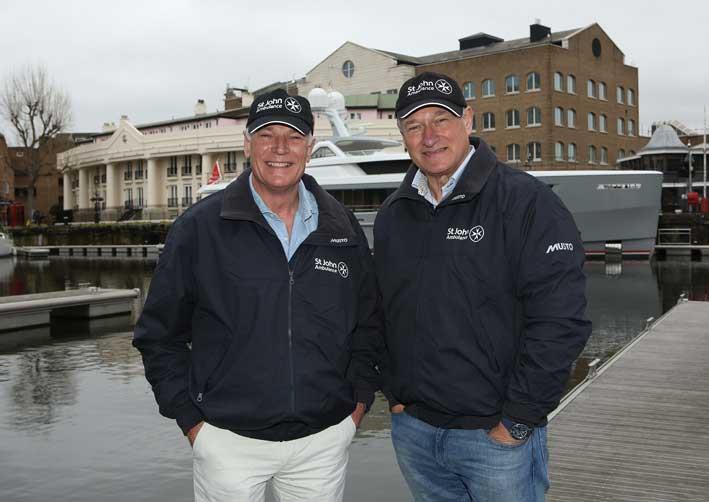It's hard to ignore the cry regarding climate change these days. Greta Thunberg's speech as she addressed world leaders at the UN summit was enough to raise our anxiety level.
Yet this new wave of awareness about our planet should not lead us to merely scare ourselves into a corner. This is an opportunity for us to get educated and figure out the part we can play in the pursuit to better our world.
Surgeon Rear Admiral Jarvis knows what his part is. Since 2007, he has been lecturing on climate change. "12 years ago, audiences failed to grasp the concepts that I was describing - a future fantasy that was distant from reality."
So when Admiral Jarvis lectured on climate change and its consequences, including mass migration, few people understood what this would mean to us. Then again, he wasn't saying anything that was new to our history. Climate change has affected migration before.
The last Ice age is one famous example. Back then, "the world's population was smaller, mostly rural, and very nomadic", Admiral Jarvis explains. "As the climate changed, populations would move to warmer and more fertile climates, resettle and flourish, in some respects as migrant herds of birds and animals migrate with the seasons."
Nowadays, the population of the world is far more significant. The world has "become more urbanised, and in some respect less mobile (despite modern transport)," he adds, "and competition for resources has also become more intense - water, food, fuel - and populations migrate in search of a more prosperous life".
Economic migration has also become a more common occurrence. The influx of migrants from Africa to Europe "has become a natural search for an improved life away from poverty, conflict, and despair for the future". But the fact is, Africa needs people because the world needs this continent to flourish.

Sir David Hempleman Adams and Lionel Jarvis
"The reality is that Africa is rich in natural resources and its increasing population, which will in coming decades provide a large proportion of the world's need for labour, would best be served by improving the governance, productivity and agriculture such that it can sustain and feed its own population."
While these new changes and patterns are overwhelming many among us, Admiral Jarvis has been expecting and seeing these patterns for years. In 2011, he, together with his colleagues, published a report on the consequences of climate change.
"The effects of climate change," the report read, "will present a threat to collective security and global order in the first half of the 21st century. This will limit access to food, safe water, power, sanitation and health services, and drive mass migration and competition for remaining resources. Starvation, diarrhoea and infectious diseases will become more common and neonatal and adult mortality will rise, as a result of conflict."
What is different now from 2011 is an increase in public awareness. "The world's leaders and thinkers, and the global population, recognise the risks of climate change, and are also deeply aware of the associated global risks of deforestation, land degradation, depleted fish stocks, plastic pollution, bleached coral reef etc. as well as the real recognition of the reality of climate change," he explains.
"This awareness is hugely important; we must harness this human energy - to reduce that pace of damage (for instance, by reducing the carbon footprint), to seek to mitigate the impact of these dangers to global health and to seek improvements to the health and prosperity of the world's population, regardless of race, ideology or politics," he concludes.
Admiral Lionel Jarvis will explore these topics and more in his talk 'Climate Change & Global Health Challenges - Perspective from a career in international military medicine' on 22 October at 6.30pm at the Phoenicia Hotel, Floriana. Tickets are priced at €25 per person, which includes wine and canapés. Tickets and further information are available via email on [email protected]